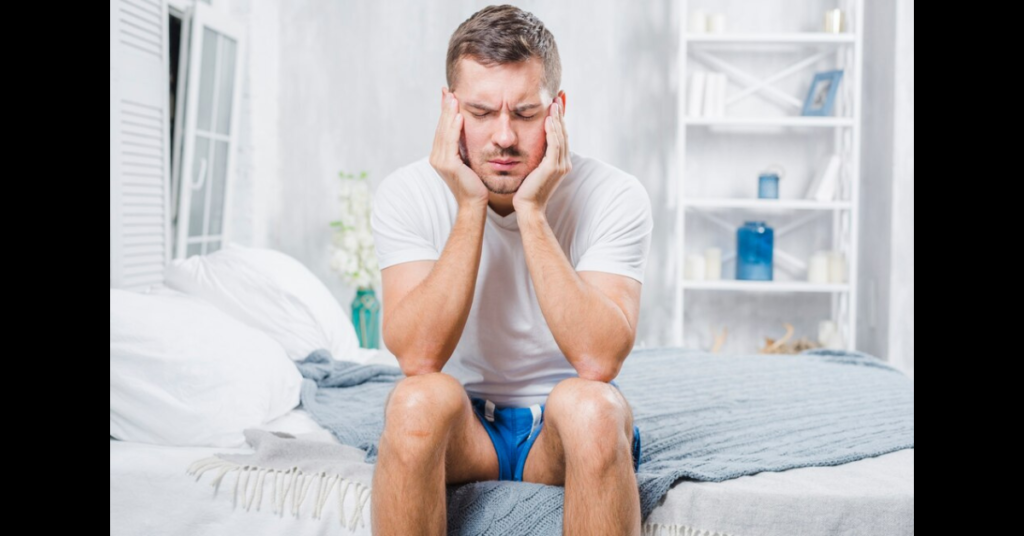In recent years, the medical community has been increasingly interested in the seemingly odd connection between sperm and cramps. While this topic might raise a few eyebrows, it’s an important aspect of reproductive health that deserves more attention. Whether you’re experiencing unusual discomfort or simply curious, understanding the relationship between sperm and cramps can provide valuable insights.
Understanding Sperm Cramps
Sperm cramps are a phenomenon where men experience abdominal pain or cramps after ejaculation. This condition can be confusing and alarming, but it’s more common than you might think. In this blog post, we’ll cover what sperm cramps are, why they happen, and what you can do about them.
What Causes Sperm Cramps?
There are several reasons why men might experience cramps after ejaculation. One common cause is prostate issues. The prostate gland plays a crucial role in ejaculation, and any inflammation or infection can lead to pain. Another possible cause is muscle strain from vigorous sexual activity. Stress and anxiety can also contribute to muscle tension, leading to cramping.
Anatomy of the Male Reproductive System
To understand sperm cramps, it’s essential to know a bit about male anatomy. The male reproductive system includes the testes, epididymis, vas deferens, seminal vesicles, prostate gland, and penis. Each part plays a role in producing, storing, and ejaculating sperm. Any issues in these areas can lead to discomfort or cramps.
Prostate Health and Its Impact
The prostate gland is a small, walnut-sized organ located below the bladder. It produces seminal fluid, which mixes with sperm to form semen. Prostate health is critical for overall reproductive well-being. Conditions like prostatitis (inflammation of the prostate) or benign prostatic hyperplasia (enlarged prostate) can cause pain and cramping.
How Ejaculation Affects the Body
Ejaculation involves a complex series of muscle contractions. These contractions help expel semen from the body. While this process is usually painless, muscle strain or spasms during ejaculation can cause cramps. Understanding how your body reacts during sex can help identify potential issues.
Common Symptoms to Watch For
If you’re experiencing sperm cramps, you might notice pain in the lower abdomen, pelvis, or testicles. This pain can range from mild to severe and might occur immediately after ejaculation or last for several hours. Other symptoms might include frequent urination, difficulty urinating, or blood in the urine or semen.
When to Seek Medical Help
While occasional sperm cramps might not be a cause for concern, persistent or severe pain should be evaluated by a healthcare professional. Conditions like prostatitis, infections, or other underlying issues might require treatment. Don’t ignore symptoms that affect your quality of life.
Lifestyle Changes to Alleviate Sperm Cramps
There are several lifestyle changes that can help reduce the occurrence of sperm cramps. Staying hydrated, maintaining a healthy diet, and managing stress can all have a positive impact. Regular exercise and avoiding excessive alcohol or caffeine can also improve reproductive health.
Effective Home Remedies
For those looking for immediate relief, there are a few home remedies that might help. Applying a warm compress to the lower abdomen can relax muscles and reduce pain. Over-the-counter pain relievers like ibuprofen can also provide temporary relief. Gentle stretching exercises might help alleviate muscle tension.
The Role of Diet in Reproductive Health
A balanced diet can play a significant role in reproductive health. Foods rich in antioxidants, vitamins, and minerals can support prostate health and reduce inflammation. Incorporating fruits, vegetables, lean proteins, and whole grains into your diet can have long-term benefits.
Stress Management Techniques
Stress can have a profound impact on the body, including the reproductive system. Practicing relaxation techniques like deep breathing, meditation, or yoga can help manage stress levels. Finding healthy ways to cope with stress can reduce muscle tension and cramping.
Importance of Regular Check-ups
Regular check-ups with a healthcare provider are essential for maintaining reproductive health. Routine screenings and exams can detect potential issues early, allowing for prompt treatment. Don’t hesitate to discuss any concerns or symptoms with your doctor.
Potential Treatments and Therapies
If lifestyle changes and home remedies aren’t enough, there are medical treatments and therapies available. Antibiotics can treat infections, while anti-inflammatory medications can reduce prostate inflammation. Physical therapy might help with chronic muscle tension.
Building a Support System
Dealing with sperm cramps can be challenging, but you don’t have to go through it alone. Building a support system of friends, family, or support groups can provide emotional support. Talking openly about your experiences can also reduce feelings of isolation.
Looking Ahead
Research on sperm cramps is ongoing, and new treatments and therapies are continually being developed. Staying informed and proactive about your reproductive health can make a significant difference. Keep an eye on the latest medical advancements and consider participating in clinical trials.
Conclusion
Sperm cramps might be an uncomfortable topic, but understanding their causes and treatments can improve your quality of life. By making lifestyle changes, seeking medical help when necessary, and staying informed, you can take control of your reproductive health. If you’re experiencing sperm cramps, don’t hesitate to explore the resources available and reach out for support. Your health and well-being are worth it.







